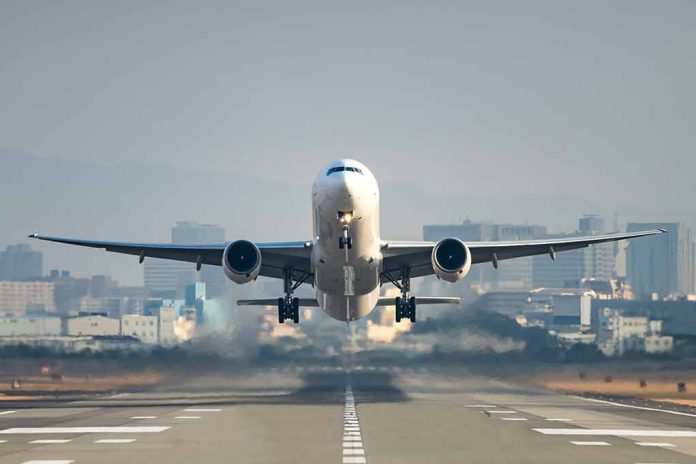
Aviation industry leaders are calling on Congress to modernize the U.S. air traffic control system following recent deadly accidents, emphasizing the urgent need for comprehensive safety reforms.
Key Takeaways
- A coalition of aviation groups urges Congress to modernize air traffic control systems and increase controller hiring.
- Recent aviation accidents, including a fatal collision near Washington, D.C., have prompted calls for urgent safety reforms.
- The industry opposes privatization of air traffic control services, favoring sustained public investment and reform.
- Outdated technology and a shortage of 3,500 air traffic controllers are major concerns.
- President Biden has proposed an $8 billion investment over five years to modernize air traffic control facilities and systems.
Industry Leaders Unite for Air Traffic Control Reform
In a united front, U.S. aviation and aerospace industry groups have sent a compelling letter to Congress, urging immediate action to modernize the nation’s air traffic control (ATC) system. This call to action comes in the wake of recent aviation tragedies, including a fatal collision near Washington, D.C., which have highlighted critical weaknesses in the current infrastructure.
The coalition, representing major airlines, manufacturers, and aviation organizations, emphasizes the necessity of creating a globally competitive and safe National Airspace System (NAS). Their objectives include supporting air traffic controller hiring and training, improving procurement efficiencies, and addressing budget reforms for the Airport & Airway Trust Fund (AATF).
There's a growing media narrative that there are more airplane crashes now in Trump's presidency than under Biden. This is false. ⁰⁰Here are the facts: In Biden's first month, there were 57 aviation incidents in the U.S., compared to 35 under Trump.⁰⁰The need for immediate…
— Secretary Sean Duffy (@SecDuffy) February 20, 2025
Critical Shortages and Outdated Systems
One of the most pressing issues highlighted by the industry leaders is the severe shortage of air traffic controllers. The Federal Aviation Administration (FAA) is currently short by approximately 3,500 controllers, leading to flight delays and mandatory overtime for existing staff. This shortage has already forced the FAA to reduce minimum flight requirements at New York City-area airports, potentially compromising safety standards.
“We must support air traffic controller workforce hiring and training, modernize and deploy state-of-the-art air traffic control facilities and equipment,” said the group.
Compounding the staffing issue is the alarming state of the FAA’s technological infrastructure. Many facilities are over 50 years old, requiring billions in repairs and replacements. The agency’s communications system is so outdated that obtaining spare parts has become a significant challenge. A stark illustration of these technological shortcomings occurred in January 2023, when a pilot alerting system outage caused a nationwide ground stop, affecting over 11,000 flights.
Proposed Solutions and Funding Challenges
In response to these critical issues, President Trump has called for a bill to modernize air traffic control facilities and systems. This substantial funding aims to address the technological backlog and bring the NAS into the 21st century. However, the aviation industry is calling for even more comprehensive measures.
The coalition is urging Congress to provide emergency funding for ATC technology and infrastructure, as well as controller staffing and training. They also advocate for guiding the FAA in divesting legacy NAS elements and adopting new procurement methods for advanced technology. Additionally, the groups are seeking additional financial mechanisms, such as multiyear budgeting, to enhance safety using AATF balances.
Opposition to Privatization
Despite the urgent need for reform, the aviation industry remains firmly opposed to privatizing air traffic control services. The coalition views privatization as a distraction from the necessary investments and reforms required to enhance the safety and efficiency of the NAS. Instead, they emphasize the importance of sustained public investment and comprehensive reform to achieve long-term safety objectives.
As the aviation sector continues to face scrutiny due to recent accidents and ongoing systemic issues, the push for modernization and increased funding gains momentum. However, the path forward remains uncertain, as any significant funding increase requires congressional approval and the president’s signature. With aviation safety at stake, the industry’s call for urgent action puts pressure on lawmakers to prioritize these critical reforms and ensure the continued safety and efficiency of America’s airspace.









